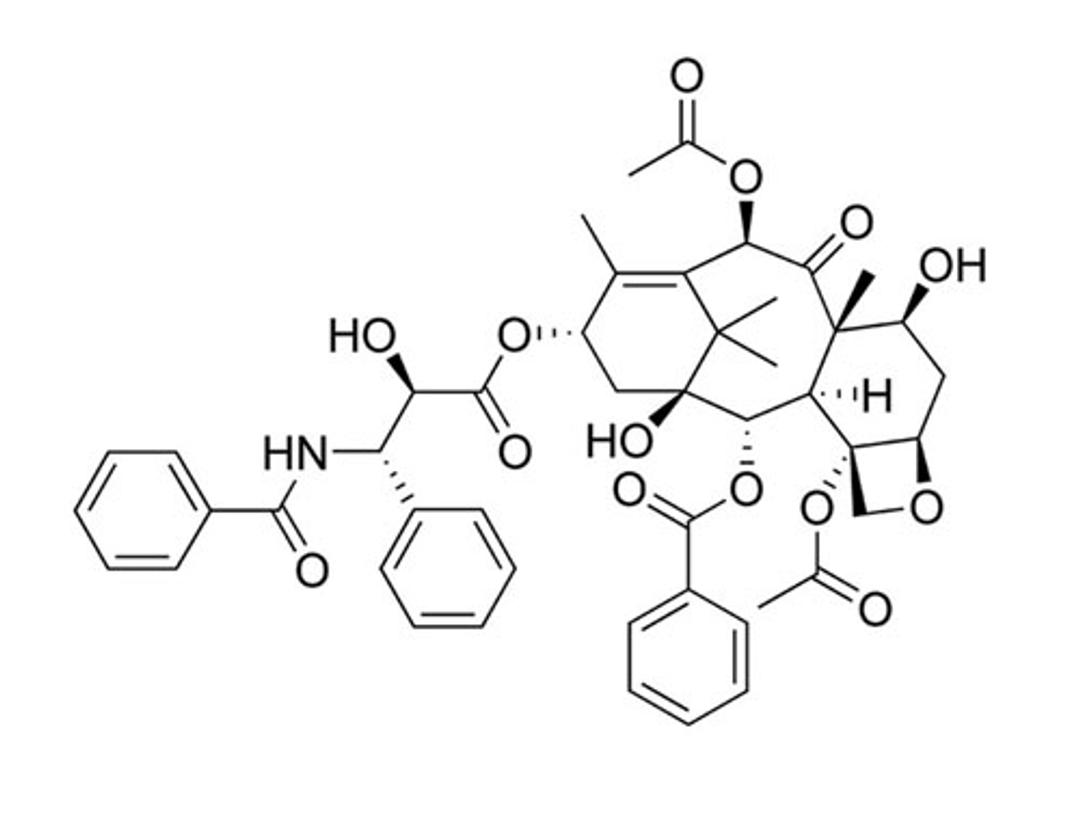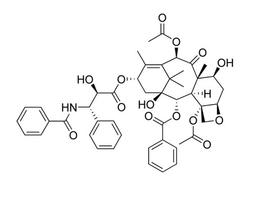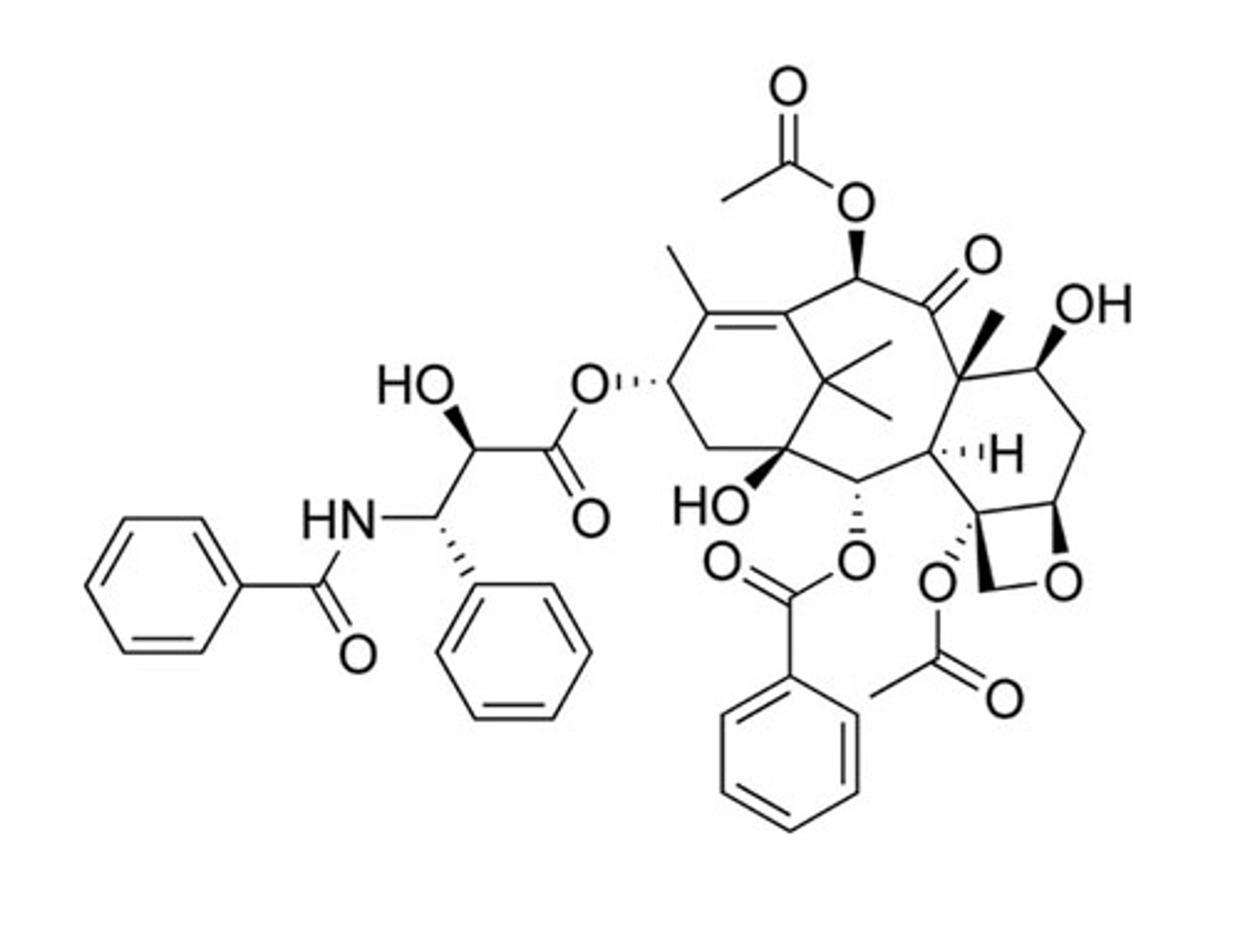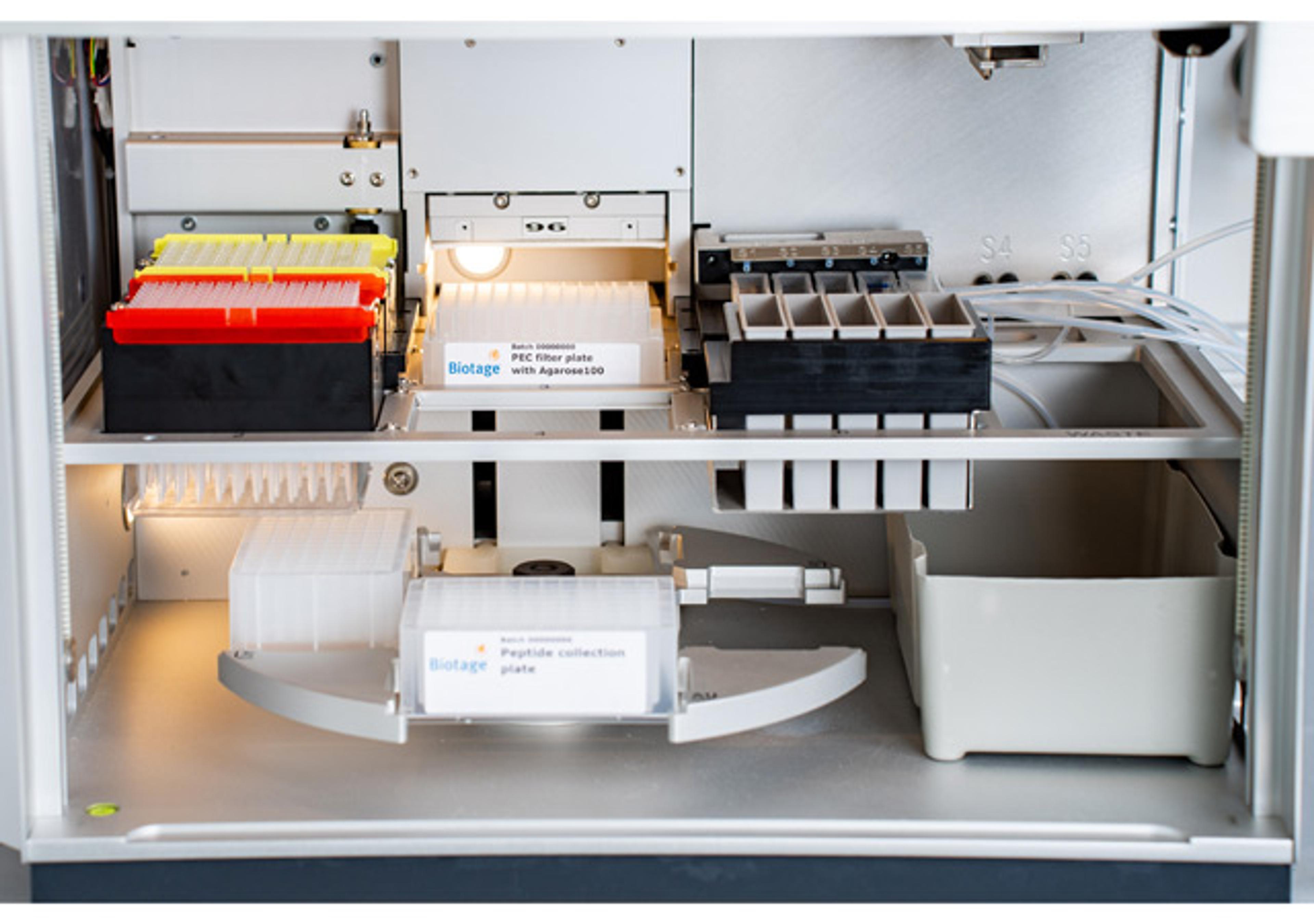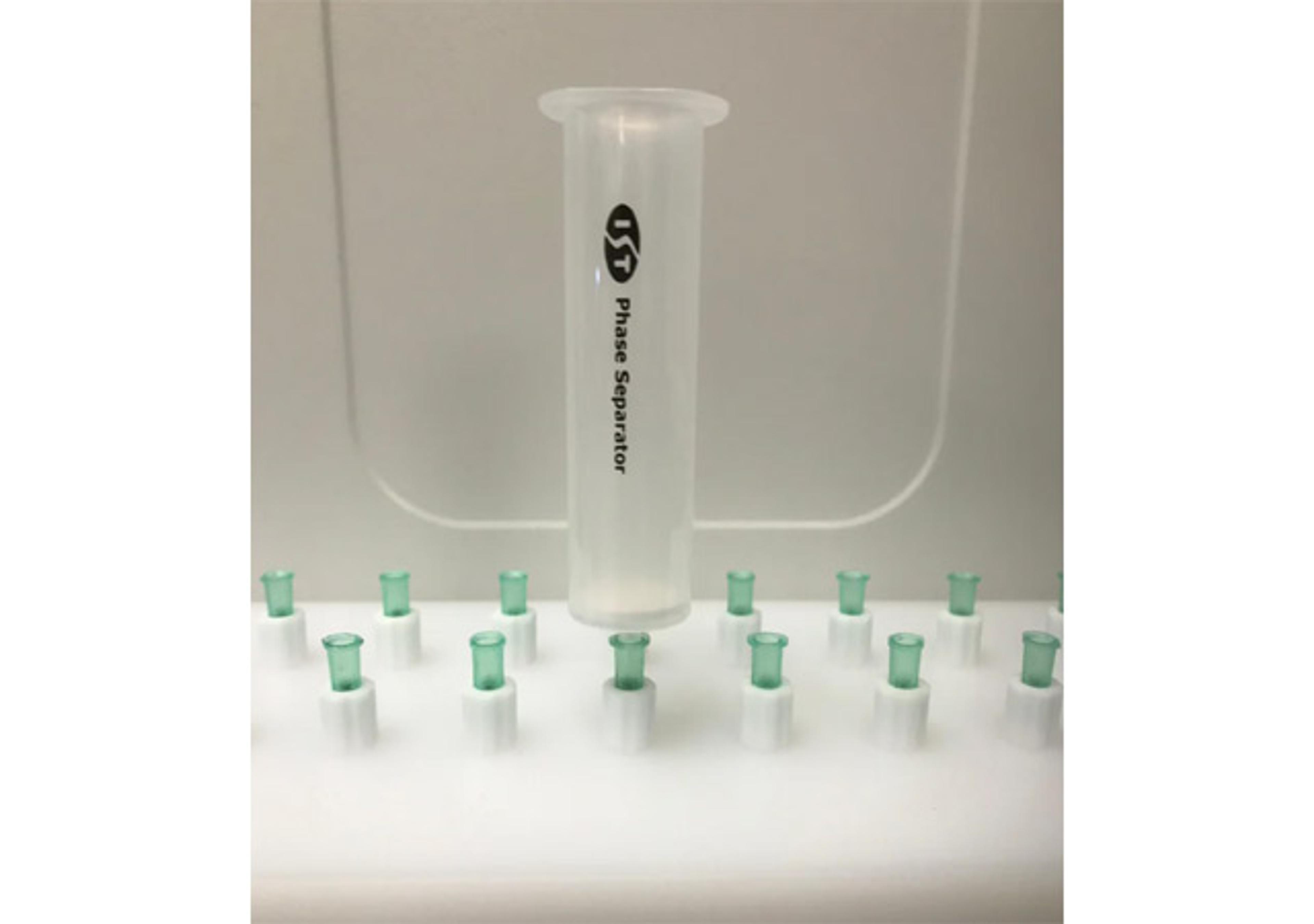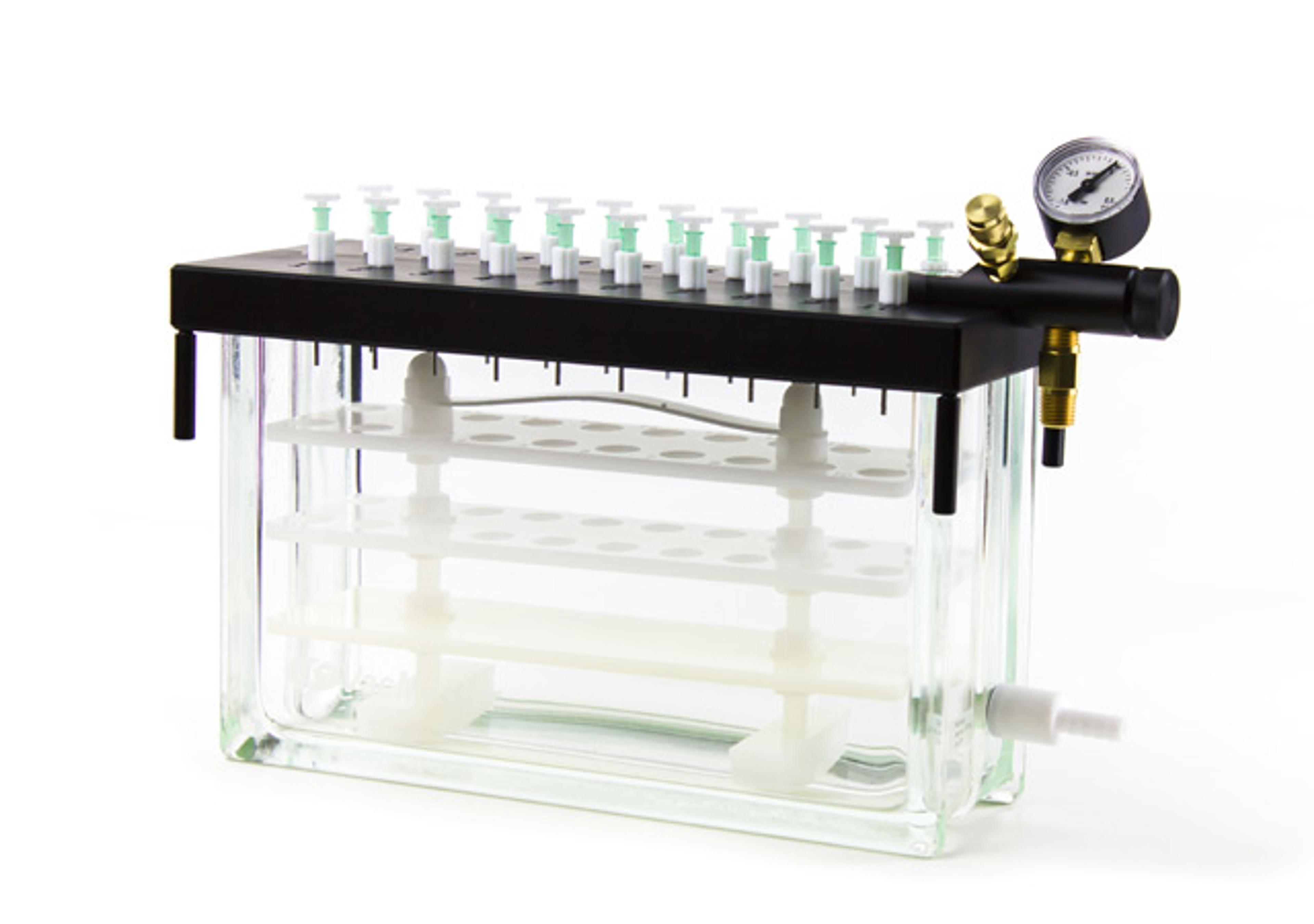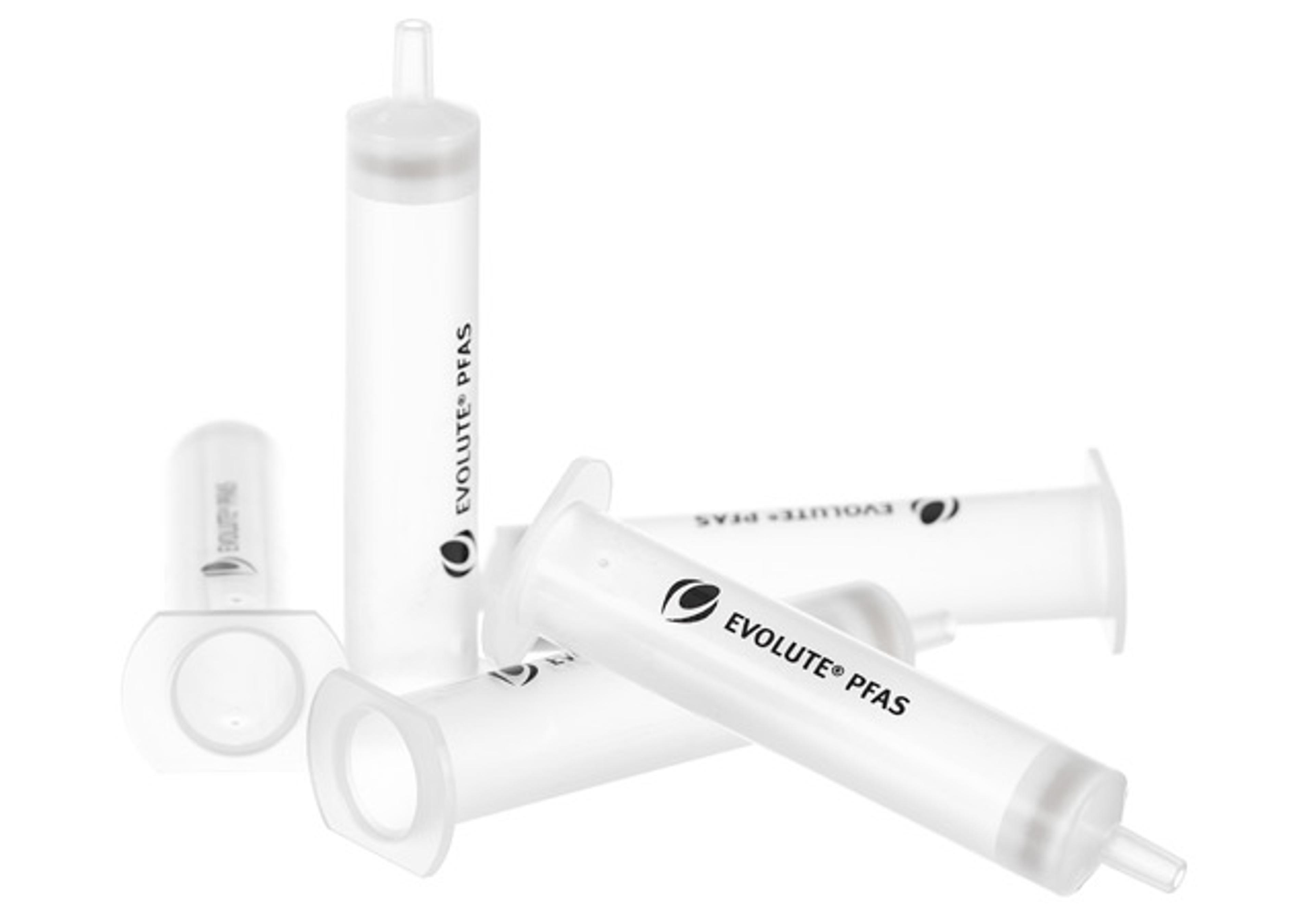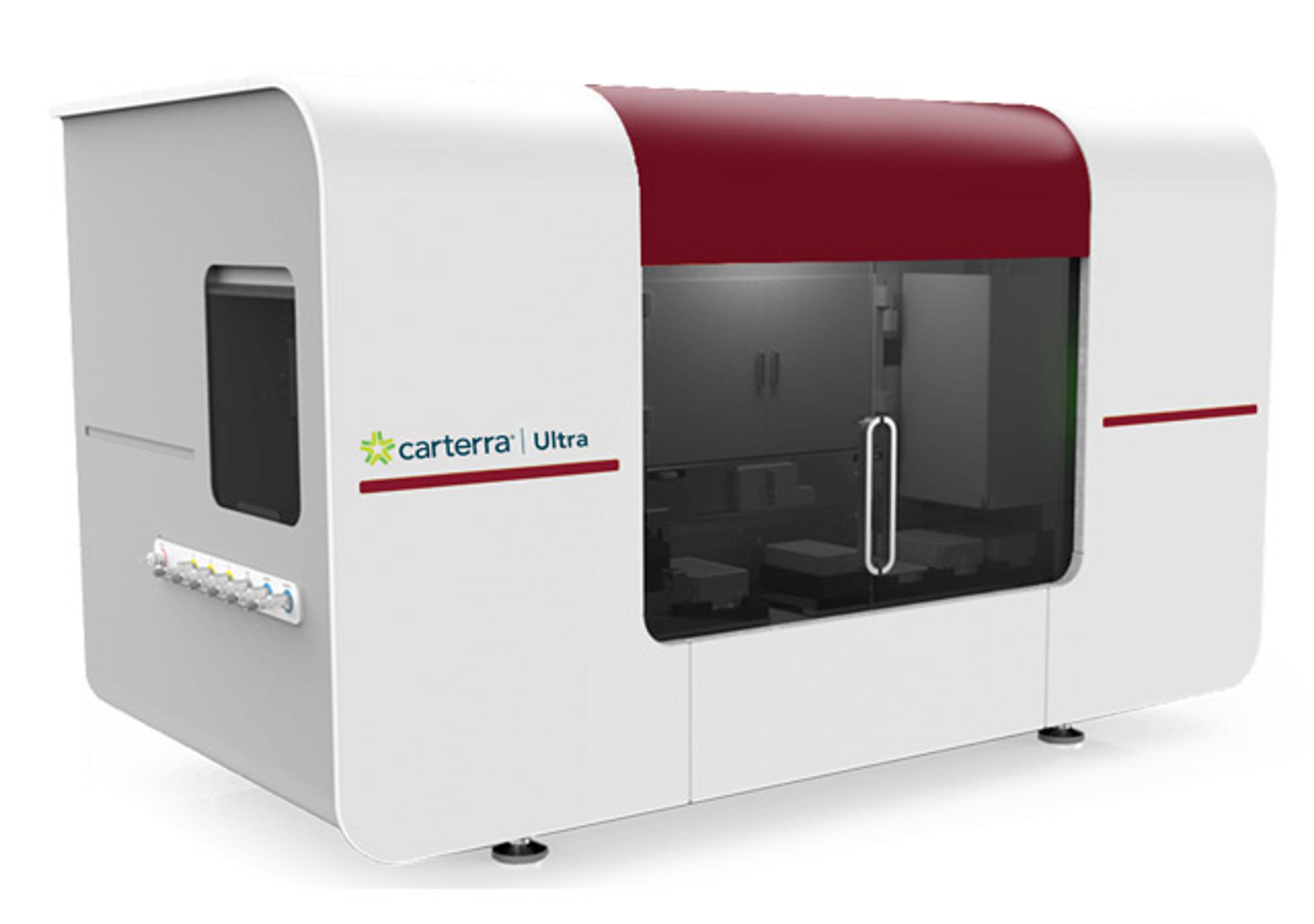Paclitaxel
Inhibitor of microtubule formation

The supplier does not provide quotations for this product through SelectScience. You can search for similar products in our Product Directory.
Paclitaxel is a diterpene alkaloid originally isolated from the bark of the Pacific Yew tree (Taxus brevifolia). It binds to and stabilizes microtubules, preventing their reorganization during cell division, which leads to cell cycle arrest. Paclitaxel has antitumorigenic properties and has been used as a chemotherapeutic compound (Rowinsky et al.). Many pathways have been implicated in Paclitaxel-induced apoptosis, including c-Jun N-terminal kinase/stress-activated protein kinase (JNK/SAPK), p38 mitogen-activated protein kinase (MAPK), and protein kinase A (PKA; Wang et al.; Reshkin et al.).
DIFFERENTIATION
- Inhibits initiation and outgrowth of neurites in vitro, through microtubule polymerization (Letourneau & Ressler).
CANCER RESEARCH
- Inhibits tumor cell growth in a variety of cancer cell lines including cervical (HeLa), lung (A549), breast (MCF-7), colon (HT-29), ovarian (OVG-1), and pancreatic (PC-Sh) carcinomas (Liebmann et al.).
- Induces abnormal multipolar spindle formation, inducing cell cycle arrest at prophase and G1 in various human cell cancer lines (Woods et al.).
- Initiates apoptosis of cancer cells through multiple mechanisms involving: p53-dependent and -independent pathways, B-cell CLL/lymphoma 2 (BCL-2) family members, cyclin-dependent kinases, p38 MAPK, PKA, and JNK/SAPK (Wang et al.; Reshkin et al.).
- Induces cyclin inhibitor p21 in MCF7 and PC3M human cancer cell lines by a mechanism dependent on the activation of RAF-1 (Blagosklonny et al.).

